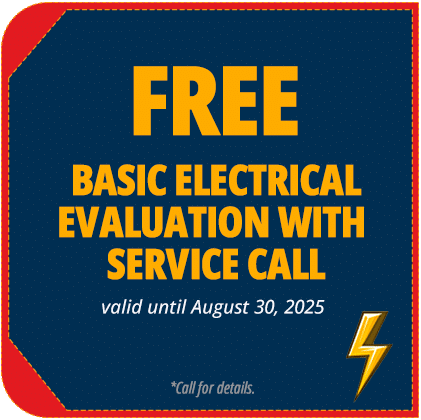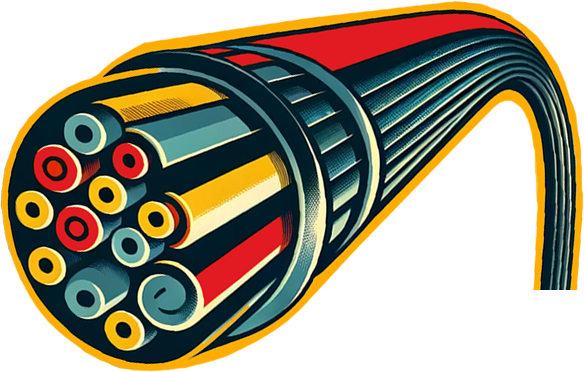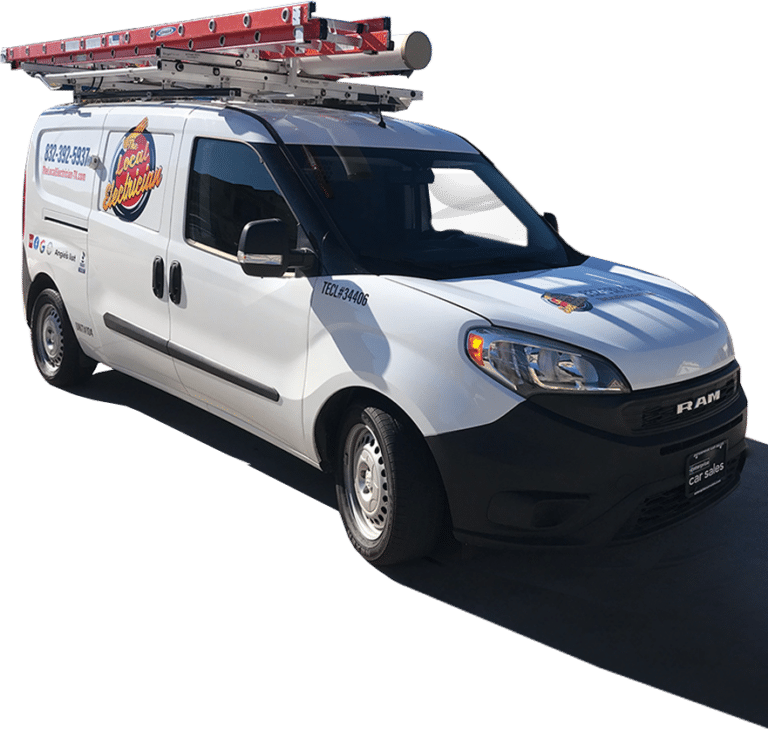Have you ever considered the convenience of waking up to a fully charged electric vehicle every morning?
The thought of bypassing those crowded public charging stations and saving precious time is quite appealing, isn’t it?
EV charger installation at home might seem daunting, but it’s an investment that pays off by providing unparalleled convenience and efficiency.
In this article, we’ll explore everything you need to know about EV charger installation. From understanding the basics to choosing the right charger and finding a professional for installation, we’ve got you covered.
You’ll learn about the benefits, the process, and how to make the most out of your home charging station.
What is EV Charger Installation?
EV charger installation is a critical step for electric vehicle (EV) owners, aiming to create a reliable and efficient charging station right at their own home or workplace. This process involves setting up a dedicated charging point that is specifically designed for electric vehicles.
Unlike plugging into a standard wall outlet, which can take a considerable amount of time to fully charge an EV, a dedicated EV charger significantly reduces charging time, making it a convenient solution for EV owners.
The installation process begins with choosing the right type of charger for your vehicle and needs.
There are primarily two types of home EV chargers: Level 1 and Level 2. Level 1 chargers use a standard 120-volt AC outlet, the same type you would find in your home for plugging in lamps or small appliances.
While Level 1 charging is the most accessible and straightforward option, it’s also the slowest, often taking overnight or longer to fully charge your vehicle.
On the other hand, Level 2 chargers require a 240-volt AC supply, similar to what large appliances like dryers or ovens use. These chargers can significantly speed up the charging process, often replenishing an EV’s battery to full in just a few hours.
Opting for a Level 2 charger is a popular choice among EV owners due to its efficiency and time-saving benefits.
Installing an EV charger also involves electrical work and possibly upgrading your home’s electrical system to accommodate the additional load.
It’s essential to have a certified electrician or a professional installation service assess your current setup and perform the installation to ensure everything is up to code and safely installed. This not only guarantees the functionality and efficiency of your charging station but also ensures the safety of your home and vehicle.
EV charger installation is about enhancing the EV ownership experience by providing a fast, convenient, and efficient way to charge your vehicle, ensuring it’s always ready for your next journey.
Understanding the Basics of EV Charger Installation
Choosing the Right Charger
The first step in the EV charger installation process is selecting the appropriate charger for your electric vehicle. This decision is crucial as it affects the charging speed and overall efficiency.
There are mainly two types of home EV chargers – Level 1 and Level 2. Level 1 chargers operate on a standard 120-volt AC outlet, which doesn’t require special installation but offers slower charging speeds.
On the other hand, Level 2 chargers use a 240-volt AC outlet, similar to what large household appliances use, and can charge your EV much faster.
The choice between Level 1 and Level 2 chargers depends on your vehicle’s compatibility and your charging needs.
Understanding Electrical Requirements
Before proceeding with the installation, it’s essential to understand the electrical requirements of your chosen EV charger.
Level 2 chargers, for instance, may require an upgrade to your home’s electrical system to handle the higher power demand. This might include installing a new circuit breaker and running dedicated wiring to the charging location.
It’s crucial to assess your current electrical system’s capacity to ensure it can support the additional load without compromising safety or efficiency.
Hiring a Qualified Electrician
The EV charger installation should always be performed by a qualified electrician. This ensures that the installation complies with local building codes and electrical standards, minimizing the risk of electrical fires or damage to your vehicle.
A professional electrician can also advise on the best location for your charger, considering factors like distance to the electrical panel and ease of access for your vehicle. Furthermore, they can assist with any necessary permits or inspections required by your local municipality.
EV charger installation is a significant step towards embracing electric mobility, offering convenience and efficiency to electric vehicle owners.
By understanding the basics, such as choosing the right charger, assessing electrical requirements, and ensuring professional installation, you can enjoy the benefits of home charging with peace of mind.
Remember, the key to a successful EV charger installation lies in careful planning and working with experienced professionals.
How to Choose the Right Charger for Your EV
Understanding Charger Levels
When it comes to EV charger installation, understanding the different levels of chargers available is crucial. The most common types are Level 1 and Level 2 chargers, each offering distinct advantages and suited to different charging needs.
- Level 1 Chargers
These chargers are the most basic type, utilizing a standard 120-volt AC outlet, similar to what you’d use for household appliances.
Level 1 chargers are typically included with the purchase of an electric vehicle and are ideal for overnight charging or for those with minimal daily driving distances.
While they are the most accessible option, they also offer the slowest charging speed, generally providing about 4 to 5 miles of range per hour of charging.
- Level 2 Chargers
Level 2 chargers require a 240-volt AC supply and are significantly faster than Level 1 chargers, making them a popular choice for home installation.
They can provide about 20 to 25 miles of range per hour of charging, which means most EVs can be fully charged overnight. This type of charger is ideal for EV owners who need quicker charging times and have higher daily driving requirements.
Vehicle Compatibility and Charging Needs
Selecting the right charger also involves considering your vehicle’s compatibility and your personal charging needs.
Not all electric vehicles charge at the same rate, even with a Level 2 charger, so it’s important to check your vehicle’s maximum charging capacity before making a decision.
Additionally, think about your typical daily mileage and how quickly you need to recharge your EV. If you frequently drive long distances and rely on your vehicle for daily commuting, investing in a Level 2 charger might be the best option to ensure your EV is always ready to go.
Features and Smart Charging Options
Modern EV chargers come with a variety of features that can enhance your charging experience. Smart chargers, for instance, allow you to control and monitor your charging session via a smartphone app.
This can include scheduling charging during off-peak hours to take advantage of lower electricity rates, tracking your energy usage, and receiving notifications when your vehicle is fully charged.
Some chargers also offer additional functionalities like adjustable amperage settings, which can be useful if you plan to upgrade your EV in the future or if you have multiple EVs with different charging capacities.
Choosing the right EV charger is a critical decision that depends on understanding the different types of chargers, assessing your vehicle’s compatibility, and considering your personal charging needs.
Whether you opt for a standard Level 1 charger for its simplicity and convenience or a faster Level 2 charger for its efficiency, ensuring you select a charger that meets your requirements will enhance your EV ownership experience.
Remember to also consider smart charging features that can provide additional convenience and cost savings.
Navigating the EV Charger Installation Process
Installing an electric vehicle (EV) charger is a multi-step process that requires careful planning and execution to ensure safety, efficiency, and compliance with local regulations.
Here’s a detailed look at what the EV charger installation process entails.
Electrical System Assessment
Before anything else, an assessment of your home’s electrical system is necessary to determine if it can support the additional load of an EV charger, especially if you’re considering a Level 2 charger.
This assessment will identify whether your current electrical panel has enough capacity for the charger and if any upgrades are needed to handle the increased demand safely.
Understanding Your Needs: This step involves evaluating your daily driving habits and charging needs to recommend the appropriate charger type and installation plan.
Safety First: A thorough inspection ensures that your EV charger installation will not only meet your charging needs but also adhere to safety standards, preventing potential hazards.
Obtaining Necessary Permits
Depending on where you live, installing an EV charger may require obtaining permits from your local government. This step is crucial for ensuring that your EV charger installation adheres to all local building codes and electrical regulations.
Navigating Local Regulations: An experienced electrician will be familiar with the local codes and can help streamline the permit application process, reducing delays and ensuring compliance.
Inspection and Approval: After EV charger installation, a final inspection by a local official may be required to approve the installation and close out the permit, ensuring everything is up to code.
Actual Installation
With the preliminary steps out of the way, the actual installation can begin. This involves several key tasks:
Installing the Charger: The electrician will install the charging station at a location that is convenient for you and suitable for your vehicle’s charging port.
Wiring and Connectivity: Proper wiring to connect the charger to your home’s electrical system is critical. This may involve running new conduit and wiring from your electrical panel to the charger location.
Final Testing: Once installed, the charger will be tested to ensure it’s operating correctly and efficiently, providing the expected charging speed and safety features.
Working with a Certified Electrician
Choosing a certified electrician with experience in EV charger installations is perhaps the most critical step in the process.
A qualified professional will not only ensure that the installation is done safely and efficiently but also help navigate the complexities of permits and regulations.
Expertise and Experience: An electrician with specific experience in EV charger installations will be able to anticipate potential issues and provide solutions that a general electrician might not consider.
Peace of Mind: Knowing that your installation is handled by a professional gives you confidence that your charger will work safely and effectively, providing you with a reliable charging solution for years to come.
The EV charger installation involves careful consideration of your electrical system, adherence to local regulations and permits, and the expertise of a certified electrician.
By understanding each step of the process, you can ensure a smooth and successful installation, making your transition to electric vehicle ownership as seamless as possible.
Understanding the Cost Considerations of EV Charger Installation
Investing in an electric vehicle (EV) charger installation at your home involves several cost factors that can influence the overall expense.
It’s essential to consider these factors to budget effectively and understand the value of your investment over time.
Charger Type and Equipment Costs
The type of EV charger you choose significantly impacts the initial cost. Level 1 chargers are generally less expensive since they can often use existing household outlets. However, their slower charging speed might not meet the needs of all EV owners.
Level 2 chargers, offering much faster charging times, require a higher initial investment but provide greater convenience and efficiency.
Level 1 Chargers: These are typically included with your EV purchase and may not require additional costs unless a replacement or additional unit is needed.
Level 2 Chargers: The cost for a Level 2 charger can vary widely based on features, brand, and capacity. Smart chargers with connectivity features and adjustable charging speeds may cost more than basic models.
Installation Complexity
The complexity of the installation process can also affect the overall cost. Simple installations where the electrical system is already capable of supporting the charger, and no major modifications are needed, will be on the lower end of the cost spectrum.
More complex installations requiring electrical upgrades, such as adding a new circuit or upgrading the electrical panel, will increase the cost.
Basic EV charger installation: Involves mounting the charger, connecting it to an existing circuit, and minimal wiring.
Advanced EV charger installation: May include extensive electrical work, trenching to run conduit underground, or installing additional components like a dedicated meter.
Electrical Upgrades
If your current electrical system isn’t equipped to handle the load of a Level 2 charger, you may need to budget for upgrades. This can include installing a new circuit breaker, upgrading your electrical panel, or adding a new line specifically for the EV charger.
These upgrades are essential for safety and functionality but will increase the initial cost.
Potential Rebates and Incentives
To encourage the adoption of electric vehicles and EV chargers, many governments and utilities offer rebates and incentives that can offset some of the installation costs. These incentives can significantly reduce your out-of-pocket expenses, making the investment more affordable.
Federal and State Incentives: Check for available tax credits, rebates, and incentives offered by your local, state, or national government.
Utility Company Rebates: Some utility companies offer rebates for installing Level 2 chargers and for using renewable energy sources to charge your vehicle.
Long-Term Savings
While the initial cost of EV charger installation can be significant, it’s important to consider the long-term savings.
Charging your EV at home is generally less expensive than fueling a traditional gasoline vehicle, and many EV owners see a reduction in their overall transportation costs. Additionally, the convenience of home charging can save time and add to the overall value of your investment.
The cost of EV charger installation is influenced by several factors, including the type of charger, the complexity of the installation, and any necessary electrical upgrades.
While there is an upfront cost, potential rebates and the long-term savings on fuel can make the investment worthwhile.
By understanding these cost considerations, you can make an informed decision that aligns with your budget and charging needs.
Maximizing Your Charging Experience with Smart EV Chargers
Investing in EV charger installation is a significant step towards embracing sustainable transportation.
To fully benefit from this investment, optimizing your charging experience is key. Smart chargers offer advanced features that not only enhance convenience but also improve efficiency and reduce costs.
The Advantages of Smart Chargers
Smart EV chargers are equipped with technology that goes beyond simply charging your vehicle. They connect to your home network, allowing remote control and monitoring of your charging session via a smartphone app or web interface.
This connectivity brings several benefits:
Scheduled Charging: You can set your charger to operate during off-peak hours when electricity rates are lower, leading to significant savings on your energy bills.
Monitoring Energy Usage: Smart chargers provide detailed reports on your energy consumption, making it easier to track and manage your electricity usage.
Remote Control and Notifications: Start or stop charging sessions remotely and receive notifications about your charging status, including when your vehicle is fully charged.
Taking Advantage of Off-Peak Rates
One of the most significant benefits of smart chargers is the ability to charge your EV during off-peak hours. Electricity rates vary throughout the day, with prices typically lower during the night and early morning.
By scheduling your charging sessions during these times, you can take advantage of reduced rates, lowering the cost of charging your EV.
Understanding Your Utility’s Rate Plan: Familiarize yourself with your utility’s rate structure to identify the most cost-effective times to charge your EV.
Programming Your Charger: Use the smart charger’s app to set a charging schedule that aligns with off-peak hours, ensuring your EV charges when electricity rates are lowest.
Enhancing Your EV Ownership Experience
Smart chargers not only make EV charging more economical but also add a layer of convenience to your EV ownership experience.
Features like remote access and real-time notifications keep you informed about your charging progress and help you manage your charging sessions more effectively.
Integration with Home Energy Systems: Some smart chargers can integrate with home energy management systems, allowing for even greater control over your household’s energy consumption.
Future-Proofing Your Charging Setup: As EV technology and smart home systems continue to evolve, having a smart charger ensures that your charging setup remains compatible with new advancements and features.
Maximizing your charging experience with a smart EV charger installation offers numerous benefits, from cost savings through off-peak charging to enhanced control and monitoring of your energy usage.
By choosing a smart charger, you not only invest in a convenient and efficient charging solution but also in a technology that complements the smart, sustainable lifestyle that electric vehicle ownership represents.
Here’s everything else you need to know about making your EV charger installation a smooth and successful project.
The Future of Home EV Charging
The evolution of home EV charging is not just about the installation process; it’s about integrating these systems into our daily lives and the broader energy ecosystem.
As we move forward, the focus shifts towards making EV charging more accessible, efficient, and integrated with smart home technologies.
Innovations in EV Charger Technology
The technology behind EV chargers is rapidly advancing, offering homeowners more sophisticated options for charging their electric vehicles.
One of the key developments is the integration of renewable energy sources, such as solar panels, with EV charging systems. This not only reduces the carbon footprint associated with electric vehicle charging but also lowers the cost of charging at home.
Another significant innovation is the advent of bi-directional charging, which allows EVs not only to charge from the home’s energy supply but also to feed energy back into the home or grid during peak demand times.
This technology transforms electric vehicles into mobile energy storage units, offering potential savings and energy efficiency for households.
Wireless EV charging is also on the horizon, promising to make home EV charging even more convenient.
By eliminating the need for cables and plugs, wireless charging pads could allow for automatic charging whenever the vehicle is parked over them, simplifying the charging process further.
Smart Home Integration
As smart home technology becomes more prevalent, the integration of EV chargers with home automation systems is a natural progression. This integration allows homeowners to manage their EV charging alongside other home energy uses, optimizing energy consumption and taking advantage of the best electricity rates.
Smart chargers can be controlled via smartphone apps, enabling users to schedule charging sessions based on their daily routine or when renewable energy production is at its peak.
Furthermore, integration with home energy management systems can help balance the load on the home’s electrical system, preventing overloads and enhancing energy efficiency.
Government Policies and Incentives
Government policies and incentives play a crucial role in the adoption of home EV charging solutions.
Many regions offer tax credits, rebates, and incentives for the installation of EV chargers, making it more affordable for homeowners to install these systems.
In addition to financial incentives, governments are also implementing policies to support the infrastructure needed for electric vehicles, such as requirements for new buildings to include EV charging capabilities. These policies not only encourage the adoption of electric vehicles but also ensure that the infrastructure will be in place to support the growing number of EV owners.
The future of home EV charging is bright, with technological innovations, smart home integration, and supportive government policies leading the way.
As these trends continue to evolve, the convenience and efficiency of charging electric vehicles at home are set to improve, making the transition to electric mobility easier and more attractive for consumers worldwide.
Enhancing EV Charger Installation for Future-Ready Homes
The landscape of EV charger installation is rapidly evolving, reflecting advancements in technology and shifts in consumer behavior.
As we look towards the future, it’s clear that the integration of EV chargers into homes will become more sophisticated, blending seamlessly with smart home technologies and renewable energy systems.
Seamless Integration with Renewable Energy
Integrating EV chargers with renewable energy sources, such as solar panels and wind turbines, is becoming increasingly popular. This approach not only reduces the environmental impact of charging electric vehicles but also offers homeowners the potential to minimize their energy costs.
Solar-Powered Charging: By connecting EV chargers to solar panel systems, homeowners can use clean, renewable energy to charge their vehicles, making the charging process more sustainable and cost-effective.
Energy Storage Systems: Advanced battery storage systems can store excess energy generated from renewable sources, which can then be used to charge EVs during periods of low sunlight or high energy demand, ensuring efficient use of renewable energy.
Smart Charging and Energy Management
The future of EV charger installation is closely tied to the development of smart charging solutions that optimize energy use and integrate with home energy management systems.
Dynamic Load Balancing: Smart EV chargers can adjust the charging rate based on the home’s current energy usage, preventing overloads and efficiently distributing energy where it’s needed most.
Integration with Smart Homes: EV chargers that communicate with smart home systems can enhance convenience for homeowners. For example, charging can be paused or delayed based on real-time energy prices or the home’s energy consumption, ensuring that vehicles are charged at the most cost-effective times.
Policy and Infrastructure Development
As the adoption of electric vehicles continues to grow, the development of supportive policies and infrastructure will be crucial in facilitating the widespread installation of home EV chargers.
Building Codes and Regulations: Updating building codes to require new homes to be EV-ready, with pre-installed wiring for EV chargers, can significantly reduce the barriers to EV charger installation.
Incentives for Homeowners: Government incentives, such as tax credits, rebates, and grants for installing EV chargers and renewable energy systems, can accelerate the adoption of these technologies by making them more accessible and affordable.
The expansion of EV charger installation into homes represents a key component of the transition towards more sustainable transportation and energy use.
By focusing on renewable energy integration, smart charging technologies, and supportive policies, homeowners can prepare their homes for the future, ensuring they are equipped to take full advantage of the benefits of electric vehicle ownership.
Top 5 Tested and Proven Strategies for Effective EV Charger Installation
The EV charger installation is a critical component in the transition to sustainable transportation.
Drawing insights from reputable sources, we delve into the top strategies to ensure a successful EV charger installation process.
Safety and Compliance
Prioritizing Safety Measures: Wallbox underscores the significance of prioritizing safety above all else. This involves selecting EV charging equipment that meets rigorous safety standards and complies with local and national electrical codes.
Ensuring that your installation adheres to these standards is crucial for preventing electrical hazards and promoting a safe charging environment.
Certification is Key: Opting for certified charging equipment guarantees that the product has undergone extensive testing and meets specific safety and performance criteria. This not only ensures the safety of the EV charger installation but also enhances the charger’s reliability and efficiency.
Efficient Electrical Connections
Strategic Panel Connection: The Washington Post highlights the necessity of connecting the EV charger to your property’s electrical panel. This step can be complex, requiring substantial electrical work, especially if the charger is positioned at a considerable distance from the panel.
Planning for this connection is essential for a smooth installation process and may involve trenching or upgrading your electrical system to accommodate the charger.
Optimizing Charging Points
Creating Profitable Charging Solutions: Mobilize.com suggests establishing profitable and user-friendly charging points, particularly in commercial settings like office buildings. This strategy involves selecting chargers that are easy to use and capable of gathering data to optimize charging efficiency and user experience.
By analyzing usage patterns, businesses can improve their charging infrastructure and better meet the needs of EV drivers.
Planning for Multifamily Residences
Accommodating Multiple Users: BDC Network provides valuable insights for installing EV charging stations in multifamily housing complexes.
Early planning and determining the appropriate number of chargers are critical steps. It’s also important to consider future expansion possibilities to accommodate an increasing number of EV owners, ensuring that the charging infrastructure can grow with demand.
Addressing Location Demands on Roads
Strategic Charger Placement: Energy5 emphasizes the importance of understanding the specific demands of locations when installing road chargers.
Assessing where chargers are most needed and developing a strategic plan to address these needs is essential for creating an effective and comprehensive charging network. This approach ensures that chargers are placed in locations where they will be most beneficial and accessible to EV drivers.
Implementing these strategies can significantly enhance the effectiveness and efficiency of EV charger installations.
By prioritizing safety and compliance, ensuring efficient electrical connections, optimizing charging points, planning for diverse housing needs, and strategically placing road chargers, individuals and businesses can contribute to a robust EV charging infrastructure. These efforts not only support the adoption of electric vehicles but also promote a more sustainable and convenient charging experience for EV owners.
The Local Electrician TX: Your Partner in EV Charger Installation
Embarking on the journey of electric vehicle (EV) ownership is an exciting step towards a more sustainable lifestyle.
To ensure a smooth transition and enhance your EV experience, having a reliable and efficient home charging setup is crucial.
The Local Electrician TX specializes in professional EV charger installation services, catering to residents across Pecan Grove, Stafford, Sugarland, and surrounding areas. Their commitment to quality, efficiency, and customer satisfaction makes them a trusted partner in your EV journey.
Also read: Electrical Panel FAQ’s: Common Problems, Solutions, and When to Call a Professional
Expert EV Charger Installation Services
The Local Electrician TX brings expertise and precision to every EV charger installation project. Understanding that each homeowner’s needs and electrical systems are unique, they offer customized solutions to meet your specific requirements.
Comprehensive Consultation
Before any installation begins, The Local Electrician TX conducts a thorough assessment of your home’s electrical system and discusses your charging needs to recommend the most suitable EV charger.
Professional Installation:
Their team of certified electricians ensures that your EV charger is installed safely and efficiently, adhering to all local codes and regulations. This guarantees a reliable charging solution that you can depend on.
Serving a Wide Range of Locations
With a broad service area that includes Pecan Grove, Stafford, Sugarland, Richmond, Rosenberg, Fulshear, Jersey Village, Heights, Memorial, Energy Corridor, Missouri City, Bellaire, West University, Spring Valley Village, Houston, and Katy, The Local Electrician TX is accessible to a wide range of EV owners.
No matter where you are located within their service area, you can expect prompt and professional service.
Customer Satisfaction and Support
The Local Electrician TX prides itself on delivering exceptional customer service. From the initial consultation to the completion of your EV charger installation, they ensure a seamless and hassle-free process.
Their commitment to customer satisfaction is evident in their meticulous attention to detail and the personalized care they provide to each client.
Ongoing Support
After your EV charger is installed, The Local Electrician TX remains available for any questions or additional support you may need.
Whether it’s troubleshooting issues or upgrading your charging setup, they are just a phone call away.
Ready to enhance your EV ownership experience with a professional charger installation? Contact The Local Electrician TX at (832) 688-4419 to schedule your installation.
Their team is ready to provide you with the expertise and quality service needed to make your transition to electric vehicle ownership as smooth and efficient as possible.
Choosing The Local Electrician TX for your EV charger installation means selecting a partner dedicated to quality, efficiency, and customer satisfaction.
With their professional services, extensive service area, and commitment to customer support, you can enjoy the convenience and benefits of home charging with peace of mind.
Conclusion: Embracing the Future with Home EV Charger Installation
Deciding to install an EV charger at your residence marks a pivotal move towards embracing convenience, enhancing efficiency, and championing sustainable transportation methods. This decision not only reflects a commitment to reducing carbon emissions but also significantly contributes to the broader goal of fostering a more environmentally friendly future.
The journey to installing a home EV charger, while it may seem daunting at first, is a pathway filled with numerous benefits.
With meticulous preparation, understanding the various aspects of EV charger types, and enlisting the assistance of professional electricians, homeowners can ensure a smooth and successful installation process.
The convenience of waking up to a fully charged vehicle every morning cannot be overstated, offering a seamless transition to your daily activities without the hassle of locating and waiting at public charging stations.
Moreover, the long-term environmental benefits and potential savings on fuel costs underscore the positive impact of home EV charging stations.
By choosing to install an EV charger, you’re not just investing in your own convenience and efficiency; you’re also making a significant contribution to a greener, more sustainable future.
We’re eager to hear about your experiences with EV charger installation.
Have you noticed a change in your daily routine?
What challenges did you face, and how did you overcome them? Share your thoughts, experiences, and any questions you might have in the comments below!
FAQs on EV Charger Installation
- What do I need to consider before installing an EV charger at home?
Consider the type of EV charger that best suits your vehicle, the location for the charger, and whether your current electrical system can support the charger’s requirements. Consulting with a professional electrician is also recommended.
- How long does it take to install an EV charger?
The installation time can vary but typically takes a few hours to complete, depending on the complexity of the installation and any required electrical upgrades.
- Can I install an EV charger myself?
It’s highly recommended to have a certified electrician perform the installation to ensure it meets all safety standards and local regulations.
- What is the cost of installing an EV charger?
Costs can vary widely based on the type of charger, installation complexity, and any necessary electrical upgrades. It’s best to get a detailed quote from a professional installer.
- How do I choose the right EV charger?
Consider your vehicle’s charging specifications, your daily driving range, and whether you prefer a faster charging option. A Level 2 charger is a popular choice for home installations.






























